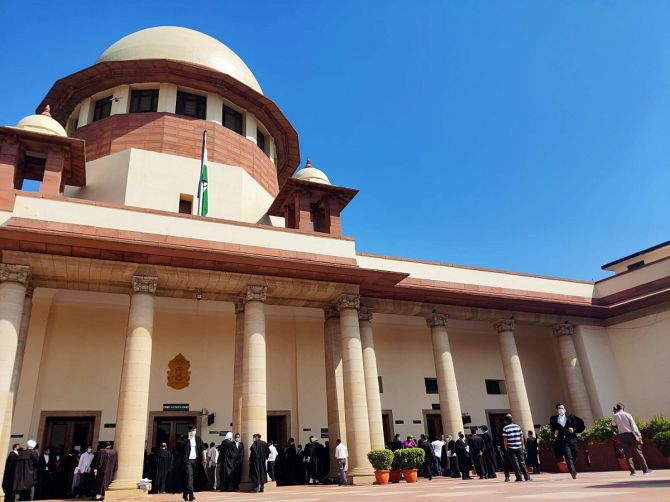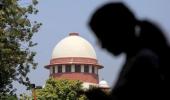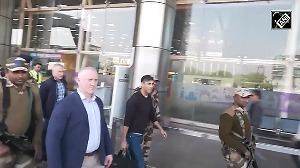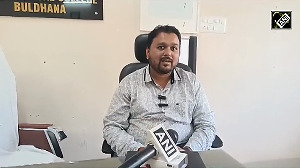A child watching porn may not be an offence but children being used in pornography is a matter of “serious” concern and may be an offence, the Supreme Court said on Friday.

The observations came from a bench of Chief Justice DY Chandrachud and Justice J B Pardiwala while reserving the verdict on an appeal filed by NGOs -- Just Rights for Children Alliance of Faridabad and New Delhi-based Bachpan Bachao Andolan -- challenging a Madras high court verdict.
The organisations work for the welfare of children.
"A child watching porn may not be an offence but children being used in pornography may be an offence and is a matter of serious concern," the bench said.
The Madras high court has ruled that mere downloading and watching child pornography is not an offence under the POCSO Act and the Information Technology law.
The high court, on January 11, also quashed the criminal proceedings against a 28-year-old man charged with downloading on his mobile phone pornographic content involving children.
Senior advocate HS Phoolka, appearing for two organisations, assailed the high court verdict and referred to the provisions of the POCSO Act and the Information Technology Act.
The bench said if one gets such material in the inbox then it has to be deleted or destroyed to avoid scrutiny under the relevant laws.
If one continues to breach the IT provisions by not deleting or destroying the child pornographic materials then it makes out an offence, it said.
The bench was responding to the submissions of the lawyer, representing the person who was accused of downloading child pornographic material that the alleged clip came to him on June 14, 2019.
The counsel for the accused, who was exonerated by the high court, said the material was downloaded automatically on his WhatsApp.
The top court, meanwhile, allowed child rights body National Commission for Protection of Child Rights to intervene in the matter and file its written submissions by April 22.
“Arguments concluded, and judgement reserved,” the CJI said.
On March 11, the top court had termed as “atrocious” the Madras high court ruling which said that mere downloading and watching child pornography is not an offence under the POCSO Act and the Information Technology law.
It had agreed to consider the appeal of the NGOs against the high court's verdict.
The high court had said that present-day children are grappling with the serious issue of watching porn and instead of punishing them, society must be "mature enough" to educate them.
While issuing the notice of the appeal, the top court had also sought the response of S Harish, a resident of Chennai and the two police officers concerned with Tamil Nadu.
The high court had quashed the criminal case against Harish under the Protection of Children from Sexual Offences (POCSO) Act, 2012 and the Information Technology Act, 2000.
“In order to constitute an offence under Section 67-B of Information Technology Act, 2000, the accused person must have published, transmitted, created material depicting children in a sexually explicit act or conduct.
"A careful reading of this provision does not make watching child pornography, per se, an offence under Section 67-B of Information Technology Act, 2000," the high court had said.
Even though the said section of the IT Act has been widely worded, it does not cover a case where a person has merely downloaded on his electronic gadget child pornography and watched the same without doing anything more, the high court had said.
Admittedly, there were two videos involving minor boys that had been downloaded and were available on the mobile phone of the petitioner, and those were neither published nor transmitted to others and were within the private domain of the petitioner, it had said.
The high court had, however, expressed concern over children watching pornography.
Viewing pornography can have negative consequences on teenagers down the line, affecting both their psychological and physical well-being, it had said.
"The Generation Z children are grappling with this serious problem and instead of damning and punishing them, the society must be mature enough to properly advise and educate them and try to counsel them to get rid of that addiction. The education must start from the school level since exposure to adult material starts at that stage itself," the judge said.
The high court had advised petitioner S Harish to attend counselling if he was still afflicted with the addiction to watching pornography.











 © 2025
© 2025